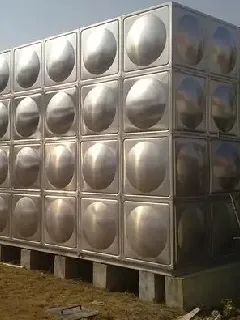loading...
- No. 9, Xingyuan South Street, Dongwaihuan Road, Zaoqiang County, Hengshui, Hebei, China
- admin@zjcomposites.com
- +86 15097380338
- Welcome to visit our website!
Understanding How Hard Water Affects Your Home and the Benefits of a Softener System
The Importance of Hard Water Softeners
Hard water, which is characterized by high mineral content, primarily calcium and magnesium ions, poses several challenges in households. While it may seem harmless, hard water can lead to a range of problems including scale buildup in plumbing, reduced efficiency of appliances, and even skin issues. This is where hard water softeners come into play, transforming hard water into soft water, thereby improving the quality of water used in daily activities.
Understanding Hard Water
Hard water originates from natural sources where water percolates through limestone and chalk deposits, picking up minerals along the way. When hard water is used in homes, it can lead to unsightly limescale deposits in pipes, on fixtures, and in appliances. These mineral deposits not only affect the aesthetic appeal but can also reduce the lifespan and efficiency of plumbing and appliances like water heaters, dishwashers, and washing machines. Hard water can also leave clothes feeling stiff and looking dingy after washing, while also causing dry skin and hair due to increased mineral content.
What is a Water Softener?
A water softener is a device that removes hardness-causing minerals from water, replacing them with sodium or potassium ions through a process known as ion exchange. This process effectively eliminates the negative impacts of hard water, making it more gentle on skin, hair, and fabrics, and preventing scale buildup in pipes and appliances.
There are two main types of water softeners traditional salt-based systems and salt-free systems. Salt-based softeners rely on the ion exchange process, while salt-free systems use a conditioning process that doesn’t significantly remove the hardness minerals but rather alters them to reduce scaling. Each type has its own advantages and is suitable for different needs and preferences.
Benefits of Using Hard Water Softeners
hard water softener

1. Improved Appliance Longevity By reducing scale buildup, water softeners help appliances operate more efficiently and extend their lifespan. This can lead to significant savings in repair and replacement costs over time.
2. Enhanced Cleaning Efficiency Soft water allows soaps and detergents to lather more effectively, improving cleaning results for laundry, dishes, and personal hygiene. Softer water can yield cleaner clothes, shinier dishes, and a more refreshing wash for the skin.
3. Cost Savings Although there is an initial investment in purchasing and installing a water softener, the long-term savings from reduced energy bills, decreased soap consumption, and lower maintenance costs can be considerable. Homeowners often find that their overall expenses decrease as a result of switching to softened water.
4. Healthier Skin and Hair Many people notice that switching to soft water leads to healthier skin and hair. Softened water helps retain moisture in the skin, reducing dryness and irritation. Additionally, hair feels softer and is less prone to frizz and damage when washed with soft water.
5. Environmental Benefits Water softeners can contribute to environmental sustainability by reducing the amount of detergent and soap needed for cleaning, which can lower the volume of chemicals entering waterways.
Conclusion
In conclusion, hard water softeners are an invaluable investment for households dealing with the inconveniences of hard water. From protecting plumbing systems to enhancing the quality of cleaning and personal care routines, the benefits are myriad. With the option of both traditional and salt-free systems, individuals can choose the best solution for their needs, leading to a more comfortable and efficient home environment. With proper maintenance, a water softener can be a lasting solution that pays dividends in convenience, health, and cost savings.
-
The Rise of FRP Profiles: Strong, Lightweight, and Built to LastNewsJul.14,2025
-
SMC Panel Tanks: A Modern Water Storage Solution for All EnvironmentsNewsJul.14,2025
-
GRP Grating: A Modern Solution for Safe and Durable Access SystemsNewsJul.14,2025
-
Galvanized Steel Water Tanks: Durable, Reliable, and Ready for UseNewsJul.14,2025
-
FRP Mini Mesh Grating: The Safer, Smarter Flooring SolutionNewsJul.14,2025
-
Exploring FRP Vessels: Durable Solutions for Modern Fluid HandlingNewsJul.14,2025
-
GRP Structures: The Future of Lightweight, High-Performance EngineeringNewsJun.20,2025
